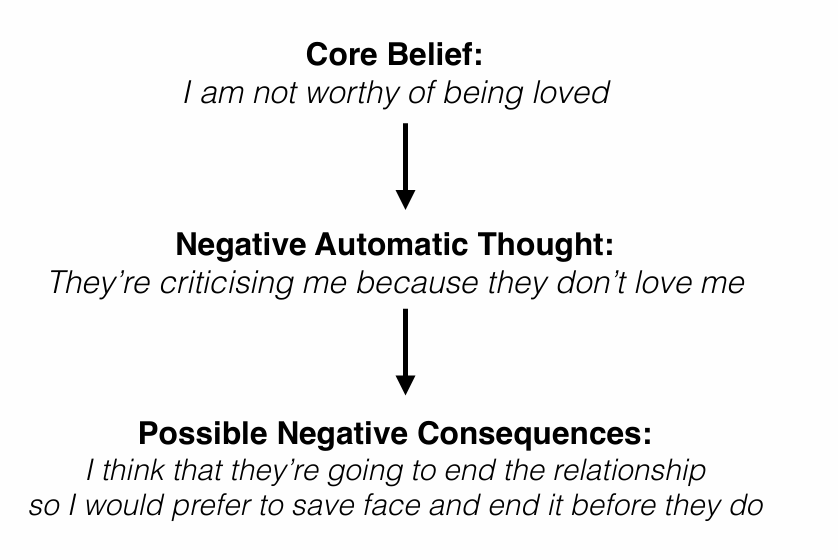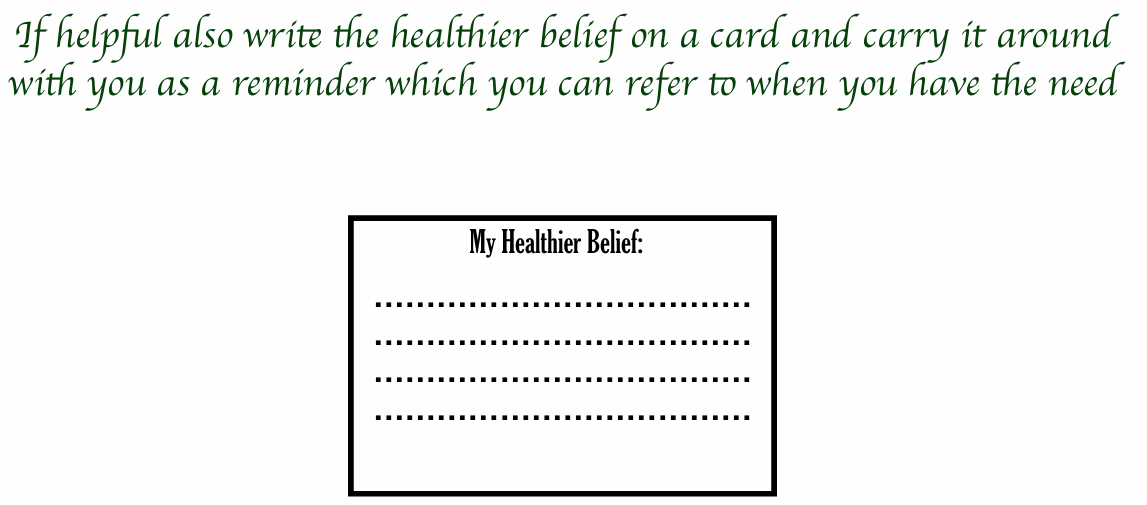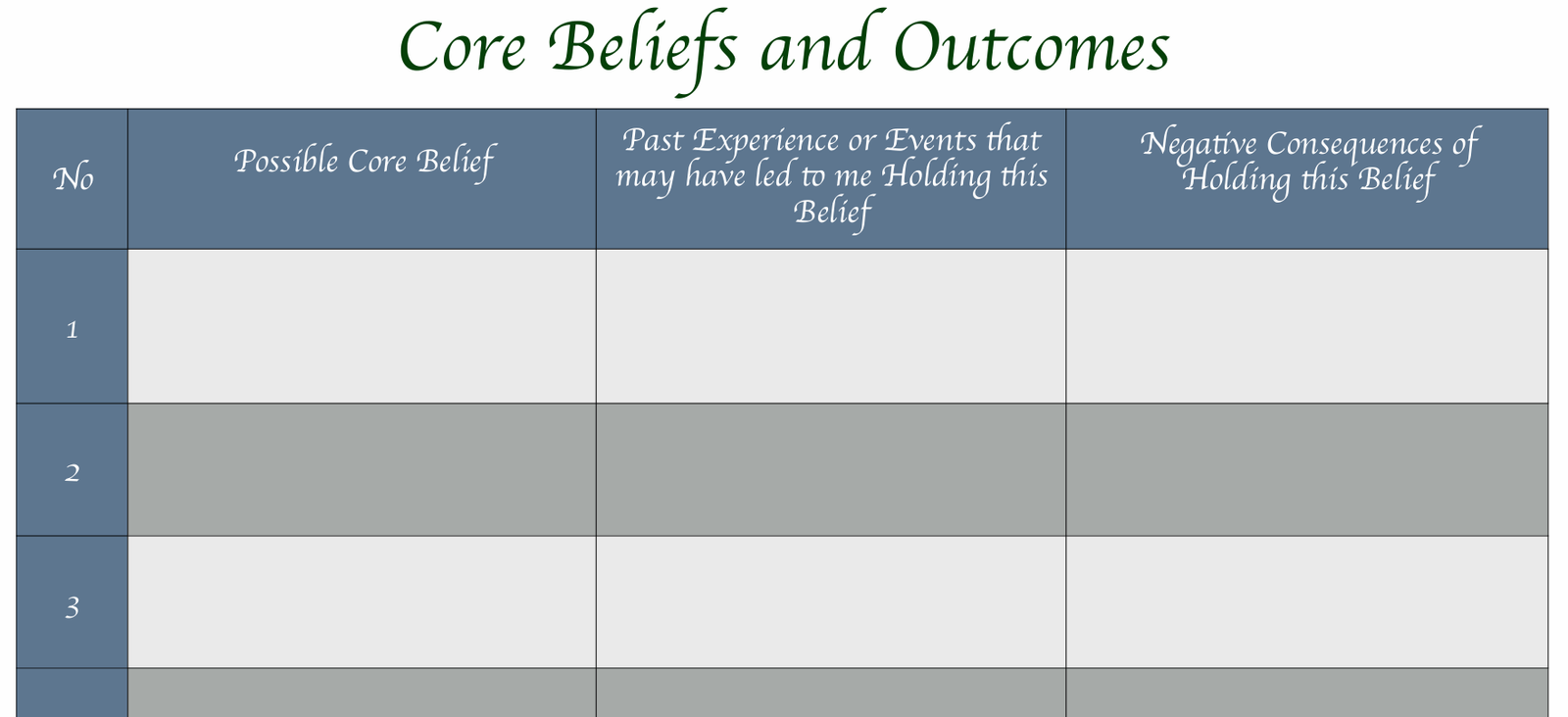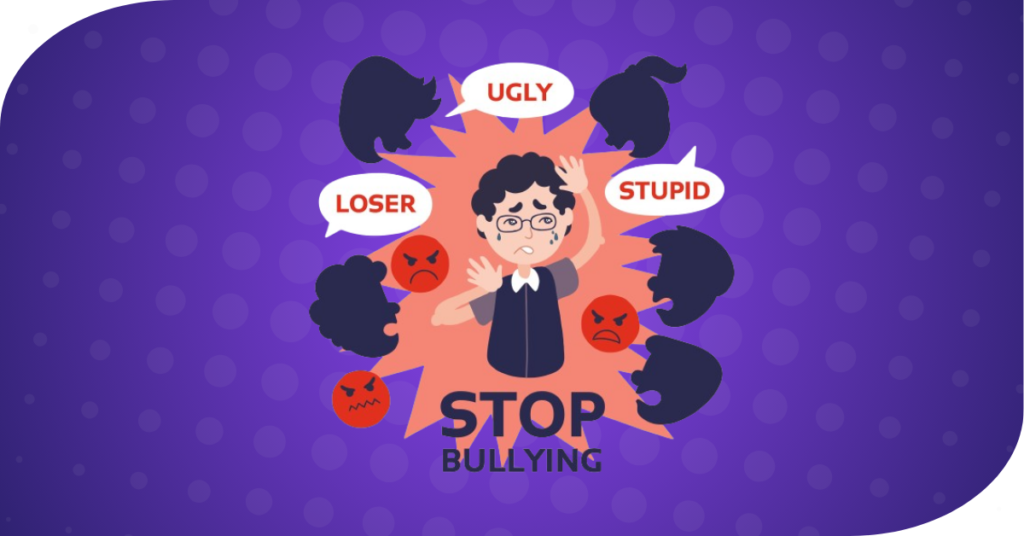Let’s first understand about beliefs.
Belief is which an individual holds a proposition or premise to be true. It involves an acceptance that something exists or is true, especially without proof. Beliefs can be based on various sources, such as personal experiences, cultural or societal norms, religious teachings, or scientific evidence. They influence how people perceive the world, make decisions, and interact with others.
Beliefs shapes our thoughts, behaviors and impacting on our mentality understanding how beliefs affect our mental state is crucial for personal development and mental well-being.
I am worthless
I’m useless, Everybody thinks I’m useless I can’t manage in a crisis
I’m a failure when it comes to relationships Nobody loves me because I’m unlovable I am always going to be alone
I’m a complete failure I never succeed Nothing good ever works out for me.
Good things just don’t happen to me
I have no control over my life
Bad luck seems to follow me around
My relationships are all destined to end in disaster
Above statements are all beliefs which have come from one individual perceptions, past events or childhood memories and surroundings who nurture the child. (up bring the child)
Formation of Beliefs:
- Family and upbringing
- Culture and society
- Education
- Religion and spirituality
- Personal experiences
- Peers and social circles
- Media and technology
- Self-reflection and critical thinking
When Do Core Beliefs Create A Problem?
They create a problem when they lead to issues such as consequences or outcomes that are harmful to you in some way, or prevent you from achieving your true potential. Let’s use the example of a person believing that they are not worthy of being loved. This will undoubtedly have an impact on them, perhaps resulting in a series of negative automatic thoughts surrounding their relationships. Let’s now imagine, that this person was on the receiving end of a mild criticism from their partner, having already a firm core belief that they’re not worthy of being loved. This could lead to them attaching too much significance to the mild criticism, leading to a downward spiral of negative thinking about their self worth and how they believe their partner views them. In extreme situations, a person may even act on this “presumed” belief, which could result in them ending a perfectly healthy, meaningful relationship.
Let’s see this sequence in a diagram:

How to overcome it:
- Challenge your thoughts
- From where to come
- Is there any belief on that thought?
- Is there any evidence for it?
- Develop and reinforce positive thought
- Seek guidance from friends, family or professional support.
- Implement behavior’s that support to the new belief.
- Reinforce the new belief through practice and repetition.
Here are some worksheets on how to identify and work on your beliefs.
Putting Core Beliefs in Context
- My core negative belief is:
- A simple explanation of how I came to believe it is:
- A more moderate or healthier belief would be:
- Write down a commitment to reminding yourself of the healthier belief at times when you find yourself thinking the negative core belief or something similar.
Worksheet:


Core Beliefs and Outcome
- Possible Core Belief
- Past Experience or Events that may have led to me Holding this Belief
- Negative Consequences of Holding this Belief
You create more space in your life when you turn your excess baggage to garbage.

